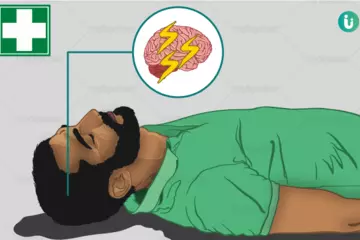Brain fog is an altered state of consciousness in which the person is less wakeful, less aware, less alert and less focused than usual.
Someone with brain fog is unable to think clearly, communicate clearly or concentrate. They may also have trouble remembering things.
Also known as a clouding of consciousness, disturbance of consciousness and mental fog, brain fog can occur in several situations.
- Our brains can be “foggy” or cloudy when we are high on alcohol or a psychoactive substance or due to sleep deprivation.
- Some pregnant women can also have problems with memory and awareness (alertness) because of pregnancy hormones or fatigue, etc. Pregnancy linked brain fog is sometimes called pregnancy brain or momnesia.
- High levels of stress and the resulting mental fatigue and exhaustion can lead to brain fog, too.
- Our minds can also be foggy during some illnesses such as:
- Nutritional deficiencies like severe sodium deficiency (hyponatremia) or vitamin B12 deficiency
- Viral infections like COVID-19 and hepatitis C. Research shows that there are around 100 viruses that can infect the brain.
- Chronic conditions like fibromyalgia may also cause brain fog (fibro fog).
- Brain injury including stroke and traumatic brain injury (read more: concussion)
- Depression: People with clinical depression may have trouble focusing, remembering, making decisions, or they may take longer to complete tasks because of depression-linked brain fog.
- Chronic fatigue syndrome, celiac disease and prolonged exposure to mercury (read more: mercury urine test)
Brain fog can also be a side-effect of certain medications and therapies like chemotherapy (chemo fog or chemo brain is a type of cognitive or thinking dysfunction that can occur as a result of cancer therapies like chemotherapy, radiotherapy and immunotherapy).
Brain fog can be short-term or it can be present for longer durations. It may be a neurological symptom of an underlying problem or it could be linked to lifestyle or life-stage and nothing to worry about.
The treatment of brain fog depends on the cause. For example, if a particular medicine is making your brain fuzzy, you could talk to your doctor about changing your prescription. If the cause is gluten sensitivity, then eating only gluten-free foods could help. And if the cause is diabetes, then managing your blood sugar levels will help to keep the brain fog at bay.
Sometimes the remedy is quite simple (and obvious). For example, if your brain is foggy because you have been burning the midnight oil for a few nights in a row, then getting adequate sleep can reduce brain fog. (Read more: Sleep and mental health)
Read on to know about brain fog as a kind of altered state of mind, what it could signify, symptoms of brain fog and brain fog in the context of COVID-19.

 Doctors for Brain fog
Doctors for Brain fog  OTC Medicines for Brain fog
OTC Medicines for Brain fog






































